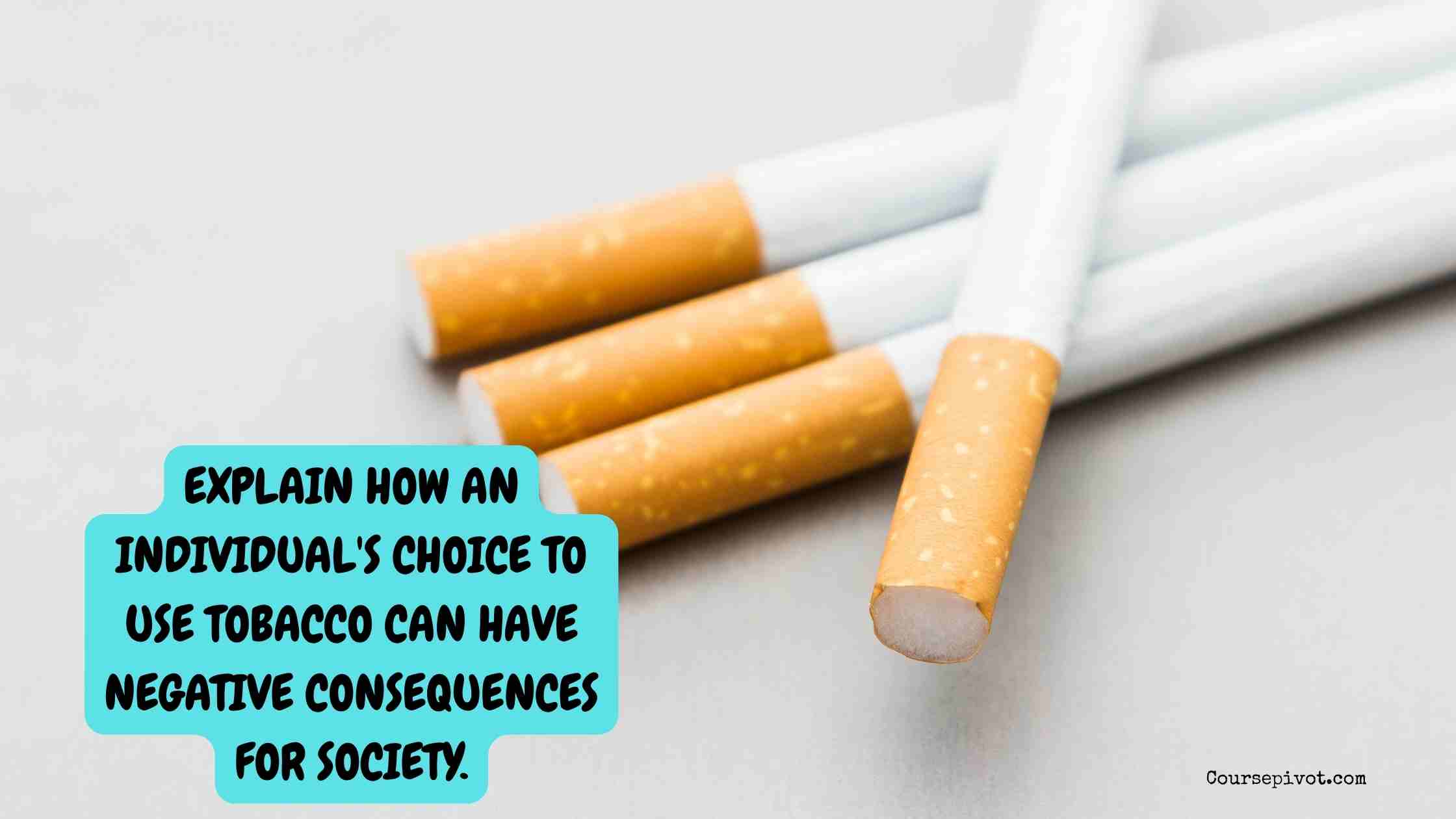
How an Individual’s Choice to Use Tobacco Impacts Society Negatively
An individual’s decision to use tobacco may seem personal, but its ripple effects harm society in profound ways. I’ve seen how smoking and other tobacco use strain communities, from healthcare systems to workplaces. Understanding how an individual’s choice to use tobacco can have negative consequences for society highlights the broader cost of this habit. In this article, I’ll explain five key ways tobacco use impacts society, drawn from my research and insights into public health as of May 2025. These consequences show why tobacco is a collective concern. Let’s dive into why tobacco use hurts society and its far-reaching effects.
Table of Contents
Ever wondered how one person’s smoking affects everyone else? The damage goes beyond the individual. Ready to explore five ways tobacco use harms society?
Tobacco’s toll is massive. I’ve been struck by how it burdens economies and families alike. Let’s uncover how one choice impacts us all.
1. Increased Healthcare Costs
Tobacco use drives up medical expenses for society by causing chronic diseases. This is a primary negative consequence of tobacco use. I’ve read about the staggering costs hospitals face treating smoking-related illnesses.
- Impact. Smoking causes lung cancer, heart disease, and COPD, costing the U.S. $225 billion annually in healthcare, per 2024 CDC data.
- Public burden. Taxpayers fund programs like Medicare, covering 60% of smoking-related hospital stays.
- Global scale. WHO reports $1.4 trillion in global healthcare and productivity losses yearly.
Why it matters? Society pays for individual choices through higher taxes and insurance premiums.
Read our blog on How Choosing Not to Smoke Can Be Beneficial to an Individual’s Health
2. Secondhand Smoke Exposure
Non-smokers suffer health risks from secondhand smoke, creating a public health issue. This societal consequence of tobacco harms vulnerable groups. I’ve seen families affected by smoke in public spaces.
- Risks. Secondhand smoke causes 41,000 U.S. deaths annually, including 7,300 from lung cancer, per CDC.
- Affected groups. Children face asthma and SIDS risks; 25% of kids in smoking households are exposed.
- Public spaces. Bans in 35 U.S. states reflect efforts to curb exposure, yet enforcement gaps remain.
Why it’s harmful? Innocent bystanders bear the cost of others’ tobacco use.
3. Reduced Workplace Productivity
Tobacco users take more sick days and breaks, lowering economic output. This negative impact on society affects businesses and coworkers. I’ve noticed how smoking breaks disrupt workflows.
- Stats. Smokers miss 6.8 more workdays annually than non-smokers, per 2023 studies, costing $97 billion in U.S. productivity losses.
- Breaks. Frequent smoking breaks reduce efficiency, with 15% of workplace time lost for some users.
- Coworker strain. Teams cover for absent colleagues, increasing stress.
Why it matters? Tobacco use drags down collective economic performance.
4. Environmental Degradation
Tobacco production and waste pollute ecosystems, burdening communities. This societal consequence of tobacco use damages shared resources. I’ve been shocked by cigarette butts littering beaches.
- Pollution. Cigarette butts, 4.5 trillion discarded yearly, leach toxins into water, per WHO 2024.
- Deforestation. Tobacco farming clears 200,000 hectares annually, worsening climate change.
- Cleanup costs. U.S. cities spend $4 billion yearly on tobacco litter, diverting public funds.
Why it’s concerning? Environmental harm from tobacco affects everyone’s quality of life.
5. Social and Family Strain
Tobacco use creates emotional and financial stress for families and communities. This negative societal impact ripples outward. I’ve seen families struggle with a smoker’s health decline.
- Family impact. 30% of U.S. households with smokers face financial strain from medical costs, per 2024 surveys.
- Emotional toll. Loved ones endure stress, with 40% of partners reporting anxiety over health risks.
- Youth influence. Kids of smokers are 2x more likely to smoke, perpetuating the cycle, per CDC.
Why it hurts? Tobacco strains relationships and burdens future generations.
Read our blog on How Choosing Not to Smoke Can Be Beneficial to an Individual’s Health
What’s Next for You
Seeing how an individual’s choice to use tobacco can have negative consequences for society is like uncovering a hidden cost we all pay. I’ve been struck by these five impacts—healthcare costs, secondhand smoke, lost productivity, environmental harm, and social strain—showing tobacco’s toll on communities. With 1.1 billion global tobacco users in 2024, per WHO, the issue is urgent. Ignoring it perpetuates harm, but awareness can drive change. Will you overlook tobacco’s impact, or advocate for a healthier society?
Here’s how to act:
- Educate others. Share facts about tobacco’s societal costs.
- Support policies. Back smoking bans or higher tobacco taxes.
- Encourage quitting. Help loved ones access resources like 1-800-QUIT-NOW.
Tobacco’s harm extends beyond the user. Why it matters is about collective well-being. Start today to reduce its impact on society.
Cite this article
You can copy and paste your preferred citation format below.
Martin, L. & Arquette, E.. (2025, May 31). How an Individual’s Choice to Use Tobacco Impacts Society Negatively. Coursepivot.com. https://coursepivot.com/blog/explain-how-an-individuals-choice-to-use-tobacco-can-have-negative-consequences-for-society/



